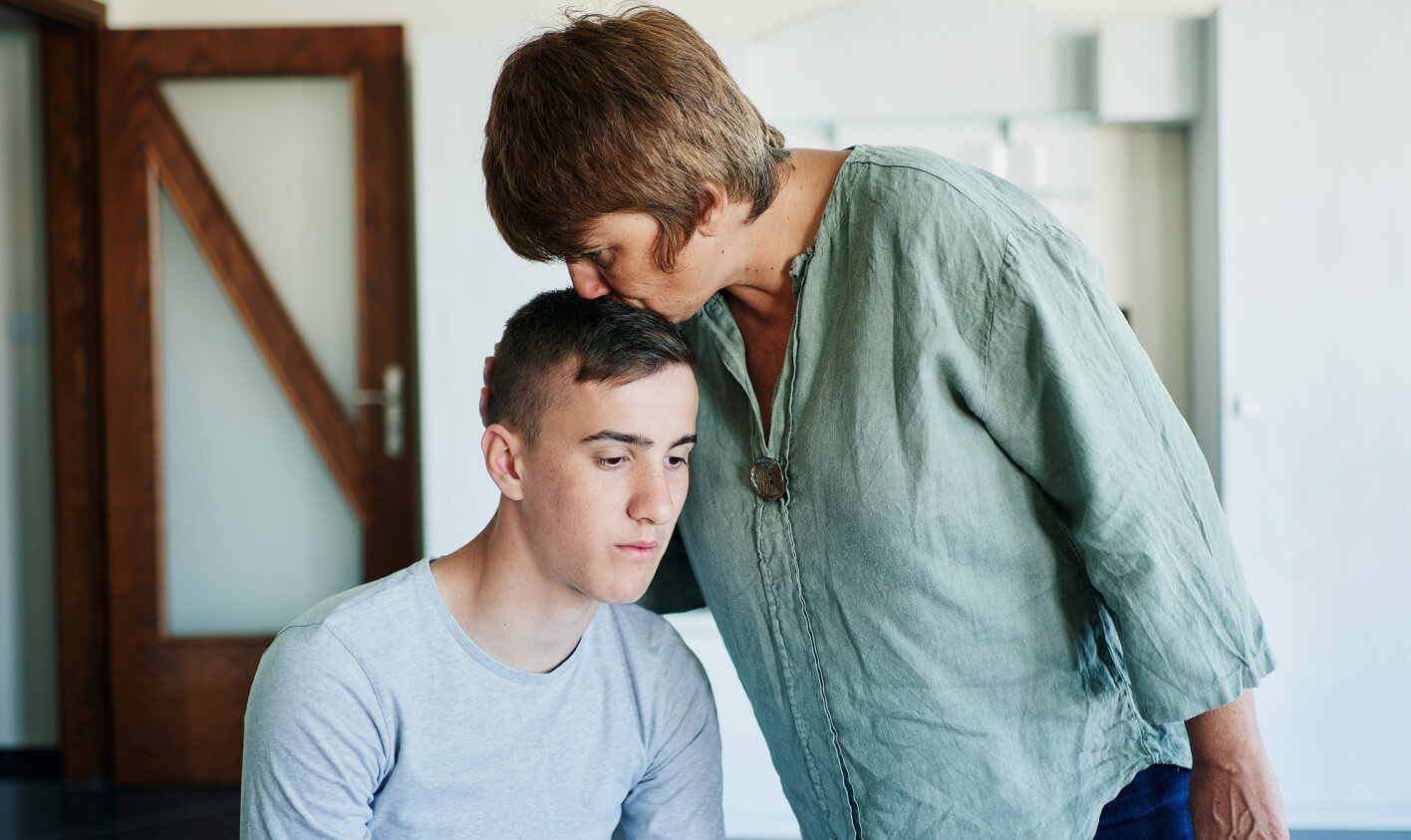Barbiturates are a class of sedative-hypnotic drugs that were historically used to treat insomnia, seizure disorders, preoperative anxiety, and other conditions but have largely been replaced by safer alternatives.[1] Though barbiturates have limited medical uses, they’re also misused to produce euphoria, reduce anxiety, and induce sleep.
At low doses, barbiturates have effects that are similar to being intoxicated. At higher doses, they can cause barbiturate poisoning – overdose – which can be fatal.[2] Recognizing the signs and symptoms of barbiturate overdose is crucial in getting medical attention and potentially reversing the effects.
Key Points
- Barbiturates are sedative-hypnotic drugs with limited medical uses.
- In medical settings, barbiturates have been largely replaced with safer alternatives.
- Barbiturates may be misused to produce euphoria and promote relaxation.
- Overdose, or barbiturate poisoning, is common because of the narrow margin for error with barbiturate dosing.
- Barbiturates have a high potential for abuse and dependence, with potentially life-threatening withdrawal symptoms.
What Are Barbiturates?
Barbiturates have a wide range of uses in medical settings. Some of the common barbiturates and their uses include:
- Methohexital and thiopental (anesthetics)[3]
- Phenobarbital and primidone (anti-seizure medication)
- Amobarbital (investigative agent for diagnostic testing)
- Butalbital (headaches)
Some states use barbiturates for physician-assisted euthanasia or capital punishment by lethal injection. Barbiturates are still used in certain circumstances, but they’ve been largely replaced by benzodiazepines. Benzodiazepines have a lower overdose risk, and an antidote, flumazenil, to reverse toxicity, which isn’t available for barbiturates.[4]
Acute barbiturate poisoning can produce serious signs and symptoms like:
- Apnea
- Profound hypotension
- Respiratory failure
- Coma[7]
How to Respond to a Barbiturate Overdose
If you suspect a barbiturate or polydrug overdose, acting quickly can mean the difference between life and death. Call 911 immediately and wait until they arrive.
Knowing if the overdose was a barbiturate on its own or a barbiturate taken with another substance can be helpful for first responders. Overdoses with opioids like heroin or prescription narcotics can be reversed with naloxone, but naloxone does not reverse barbiturate toxicity.[8]
Barbiturate Overdose Treatment
Barbiturates are dangerous in general, but the risk of overdose increases with chronic use or when barbiturates are involved in polydrug use.
The official term for barbiturate addiction is barbiturate use disorder, which includes the following symptoms:
- Taking the barbiturate in a way that was not intended (misuse)
- Having strong urges and cravings for barbiturates
- Building a tolerance to barbiturates
- Being unable to decrease or stop barbiturate use
- Taking barbiturates despite problems with health or life[9]
With barbiturate addiction, cutting back or quitting barbiturates can bring unpleasant withdrawal symptoms, including:
- Sweating
- Insomnia
- Restlessness
- Anxiety
- Tremors
- Low body temperature
- Seizures
- Possible death[10]
These symptoms can be intense – even life-threatening – so medical detox is often the first step in seeking treatment for barbiturate addiction. Detox provides 24/7 medical supervision to keep you safe and comfortable. In some cases, a tapering schedule is recommended to wean off of barbiturates.
Medical detox is a big step toward abstinence, but it’s not enough on its own. Addiction treatment in an inpatient or outpatient setting is key to addressing the underlying causes of addiction and developing skills and strategies for long-term recovery.
Whether you choose an inpatient or outpatient treatment program, it will involve an individualized care plan with a combination of therapies like individual counseling, peer support groups, and behavioral therapies like cognitive behavioral therapy (CBT).[11]
Frequently Asked Questions About Cocaine Effects on the Brain
Are Barbiturates Safe?
Barbiturates have limited medical uses, but they’ve mostly been replaced by safer medications for treating different medical conditions. They have a narrow therapeutic index, however, which means a narrow margin for the therapeutic dosage and the toxic dosage, leading to overdoses.[12] They also have a high potential for abuse, addiction, and overdose with both medical and illicit use.
How Are Barbiturates Used?
Barbiturates have been used in medicine since the early 1900s. Illicit use has declined as well, but barbiturates may still be used in pill or injection form.[13] Barbiturates are sometimes combined with other drugs to enhance their effects or to counteract unwanted effects.
Can a Barbiturate Overdose Be Reversed?
With prompt medical treatment, barbiturate overdose can be reversed. Some overdoses are fatal, however, even with a mild overdose and aggressive treatment. Several factors influence the outcome of a barbiturate overdose, including the use of other drugs, any comorbidities, the speed of medical attention, and which particular barbiturate was used.[14] Some have narrower margins for error.
Barbiturate toxicity – statpearls – NCBI bookshelf. (n.d.-a). Retrieved from https://www.ncbi.nlm.nih.gov/books/NBK499875/ on 2023, July 11.
Barbiturate toxicity – statpearls – NCBI bookshelf. (n.d.-a). Retrieved from https://www.ncbi.nlm.nih.gov/books/NBK499875/ on 2023, July 11.
Barbiturate toxicity – statpearls – NCBI bookshelf. (n.d.-a). Retrieved from https://www.ncbi.nlm.nih.gov/books/NBK499875/ on 2023, July 11.
Barbiturate toxicity – statpearls – NCBI bookshelf. (n.d.-a). Retrieved from https://www.ncbi.nlm.nih.gov/books/NBK499875/ on 2023, July 11.
Devenyi, P., & Wilson, M. (1971, February 6). Barbiturate abuse and addiction and their relationship to alcohol and Alcoholism. Canadian Medical Association journal. Retrieved from https://www.ncbi.nlm.nih.gov/pmc/articles/PMC1930792/ on 2023, July 11.
Devenyi, P., & Wilson, M. (1971, February 6). Barbiturate abuse and addiction and their relationship to alcohol and Alcoholism. Canadian Medical Association journal. Retrieved from https://www.ncbi.nlm.nih.gov/pmc/articles/PMC1930792/ on 2023, July 11.
Barbiturate toxicity – statpearls – NCBI bookshelf. (n.d.-a). Retrieved from https://www.ncbi.nlm.nih.gov/books/NBK499875/ on 2023, July 11.
Naloxone. SAMHSA. (n.d.). Retrieved from https://www.samhsa.gov/medications-substance-use-disorders/medications-counseling-related-conditions/naloxone#:~:text=Naloxone%20is%20effective%20if%20opioids,overdoses%20involving%20cocaine%20and%20amphetamines on 2023, July 11.
Barbiturate use disorder – what you need to know. Drugs.com. (n.d.). Retrieved from https://www.drugs.com/cg/barbiturate-use-disorder.html on 2023, July 11.
G;, S. C. P. G. (n.d.). [barbiturate withdrawal syndrome: A case associated with the abuse of a headache medication]. Annali italiani di medicina interna : organo ufficiale della Societa italiana di medicina interna. Retrieved from https://pubmed.ncbi.nlm.nih.gov/10349206/ on 2023, July 11.
Barbiturate use disorder – what you need to know. Drugs.com. (n.d.). Retrieved from https://www.drugs.com/cg/barbiturate-use-disorder.html on 2023, July 11.
WebMD. (n.d.). Barbiturate abuse. WebMD. Retrieved from https://www.webmd.com/mental-health/addiction/barbiturate-abuse#:~:text=Barbiturates%20can%20be%20extremely%20dangerous,a%20life%2Dthreatening%20withdrawal%20syndrome on 2023, July 11.
WebMD. (n.d.). Barbiturate abuse. WebMD. Retrieved from https://www.webmd.com/mental-health/addiction/barbiturate-abuse#:~:text=Barbiturates%20can%20be%20extremely%20dangerous,a%20life%2Dthreatening%20withdrawal%20syndrome on 2023, July 11.
WebMD. (n.d.). Barbiturate abuse. WebMD. Retrieved from https://www.webmd.com/mental-health/addiction/barbiturate-abuse#:~:text=Barbiturates%20can%20be%20extremely%20dangerous,a%20life%2Dthreatening%20withdrawal%20syndrome on 2023, July 11.

